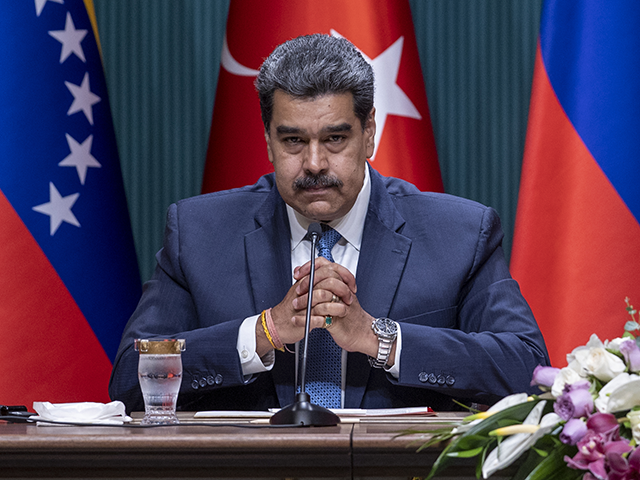Chilean media reported on Wednesday that one of the fugitive main suspects in the killing of Venezuelan dissident Ronald Ojeda is not just linked to the Tren de Aragua (Aragua Train) criminal organization, but worked for the Venezuelan government in 2015.
Chilean outlet Ex-Ante reported on Wednesday that Walter de Jesús Rodríguez Pérez, a 28-year-old Venezuelan citizen whom Chilean authorities suspect is linked to the Aragua Train and planned the abduction and killing of Ojeda, worked for the office of the governor of the Venezuelan state of Aragua in 2015. The Aragua Train is named for the state where it was born in 2012.
Ronald Ojeda was a 32-year-old Venezuelan dissident and former member of the Venezuelan military living in exile in Chile. He was reportedly abducted in February by a group of men who pretended to be members of Chile’s immigration police. His body was found inside a suitcase and buried under a concrete structure ten days after his abduction.
Weeks before Ojeda’s disappearance, the Venezuelan regime accused him of being part of a plot to assassinate dictator Nicolás Maduro and other officials. Chilean officials confirmed this week that the Aragua Train was involved in the killing of Ojeda and did not rule out the possibility that Maduro’s administration was involved directly.
Ex-Ante confirmed the fugitive suspect’s former employment with the Venezuelan government through publicly available information on the website of the Venezuelan Institute of Social Security (IVSS), which maintains a public record of every Venezuelan’s social security contributions and the status of their elderly or disability pensions, among other relevant information.
The Chilean outlet claimed that Rodríguez Pérez’s salary is shown as “zero” Venezuelan bolivars likely because of monetary conversions that took place in recent years because of the collapse of socialism and the subsequent hyperinflation spiral.
At the time of Rodríguez Pérez’s employment, Ex-Ante said, the governor of Aragua was Tareck El Aissami, a then-high-ranking member of the socialist Maduro regime long believed to be part of the drug-trafficking organization of Venezuelan officials known as the Cartel de los Soles (Cartel of the Suns). El Aissami was believed to maintain deep ties to the Hezbollah Lebanese Shiite terrorist group.
Maduro purged El Aissami and his entire power structure within the Venezuelan socialist regime as part of an “anti-corruption” campaign after $3 billion in oil revenue “disappeared.” El Aissami has not been publicly seen or heard from since.
In a separate report, Ex-Ante stated that Rodríguez Pérez has been considered a fugitive of Chilean justice since 2022 when he was involved in a ransom scheme. Rodríguez Pérez is also being investigated in relation to the discovery of three bodies in the city of Curacaví, Chile, in April 2023, as well as a separate kidnapping case later that year.
In addition to Ex-Ante’s report, Chilean outlet ADN claimed on Wednesday that it had obtained access to the ongoing investigation’s background, where Rodríguez Pérez and fellow Venezuelan citizen Maickel Villegas Rodríguez are listed as the main suspects in the abduction and killing of Ojeda.
Authorities suspect that both suspects fled Chile. As a result, international arrest warrants have been issued.
During a Senate hearing, Chilean Security Minister Carolina Tohá criticized the allegedly “leaked” reports published by Chilean media. Tohá avoided confirming or denying the authenticity of leaks but suggested the government is already hunting down the leakers.
“We are not going to give our opinion, nor are we going to be part of the leaks of the investigative file,” Toha said. “It seems to us that it is a service that it is evaluated by the Prosecutor’s Office, that the officials who may be behind these leaks be investigated. Not the journalists, certainly, but the officials.”
“The only ones who have access to the investigative file are officials who may be from the police, may be from the Prosecutor’s Office, or from some other agencies that sometimes know part of the file,” she continued.
Tohá stressed that leaks of that nature have “become a habit in Chile,” pointing out that “organized crime has the characteristic of taking revenge on those who denounce it and those who provide background information.”
“With this leak, the only thing they are doing is exposing the people who collaborate with the investigations,” she said.
Christian K. Caruzo is a Venezuelan writer and documents life under socialism. You can follow him on Twitter here.

COMMENTS
Please let us know if you're having issues with commenting.